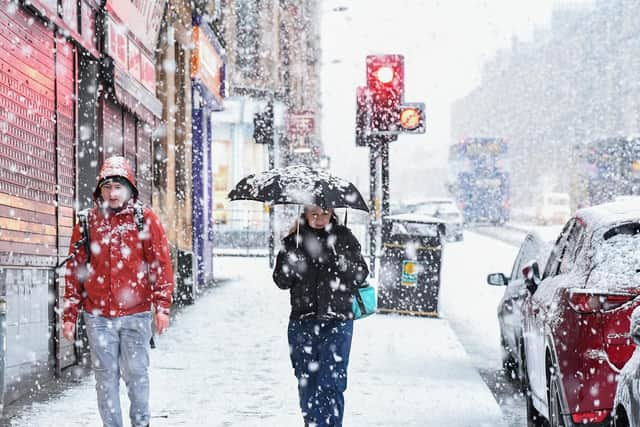When does winter 2019 actually start? Why there's two different start dates for the UK season
and live on Freeview channel 276
A summer of record-breaking temperatures now seems a distant memory, as autumn takes hold of the UK with some decidedly unpleasant weather conditions.
As the falling leaves, gloomy mornings and bitter evenings draw in, the inevitable dawns on us: winter is coming.
Advertisement
Hide AdAdvertisement
Hide AdBut when does the season actually begin in the UK – and why are there two different start dates, depending on how you prefer to calculate it? Here's what you need to know.


When does winter start?
What is considered the first day of winter depends on whether you are using the meteorological or astronomical definition of the seasons.
Meteorological is the simpler of the two options, as it splits the year into four seasons of three full months each based on the Gregorian calendar, which makes it easier to compare seasonal and monthly statistics.
Under this system, every year winter begins on 1 December and lasts until the end of February, giving way to the arrival of spring on 1 March.
Advertisement
Hide AdAdvertisement
Hide AdThe astronomical season isn't quite as straightforward because the first date falls on the date of the winter solstice, which arrives later in the year and can vary slightly from year to year.
In 2019, the winter solstice falls on 22 December for the first time in four years – it can occur any date between 20 and 23 December, but usually takes place on the 21st of the month.
This astronomical winter will last until 20 March 2020, the date of the spring (or vernal) equinox in the Northern Hemisphere.
What is the winter solstice?
The winter solstice marks the date of the shortest period of daytime light and longest night of the year, when the Earth's north pole has its maximum tilt from the sun.
Advertisement
Hide AdAdvertisement
Hide AdThis means that on 22 December this year, London is set to see a paltry 7 hours, 49 minutes of daylight, with the sun rising at 8.04am and setting at 3.53pm.
Slightly confusingly, as well as kicking off the astronomical season, the solstice can also be known as midwinter, because the days begin to get longer after it has passed.
Traditional holidays across the world have often focused on the rebirth of nature for this reason, and many of the traditions now associated with Christmas began as observances of the astronomical phenomenon.